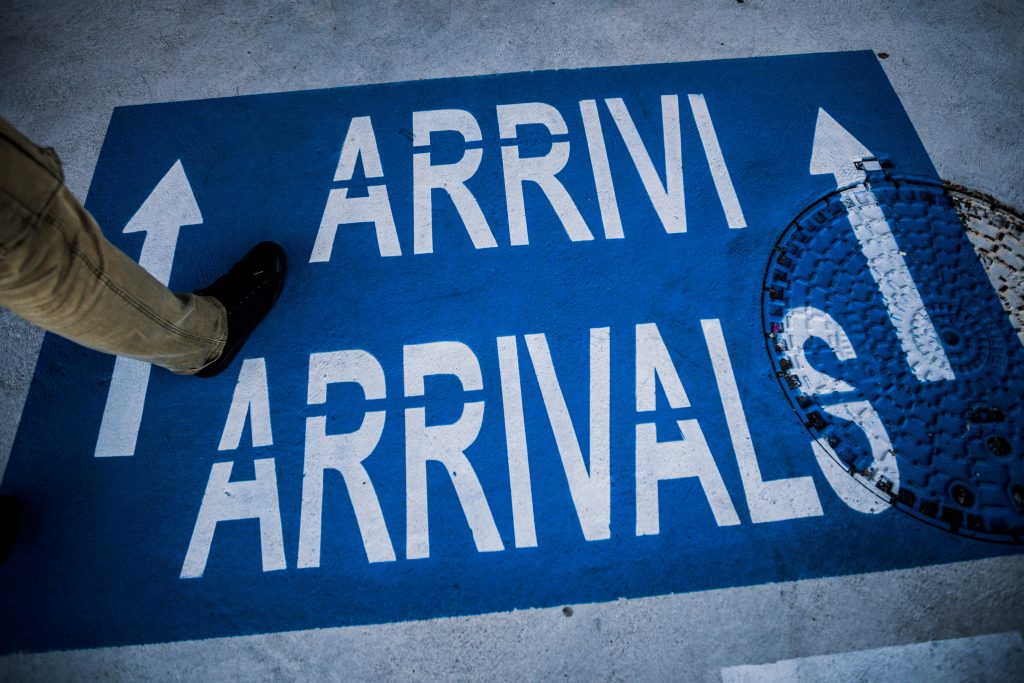With the pandemic at the forefront of everyone’s minds, coupled with previous uncertainties surrounding the post-Brexit landscape, the impact of Brexit on the workforce may have understandably shifted out of focus.
After many months of trying to get the Bill through Parliament, on 11 November 2020 the Immigration and Social Security Co-ordination (EU Withdrawal) Act 2020 became law. Boris Johnson said “the legislation marked the first time in the UK where workers would enter the UK on the basis of the skills they have to offer and the contribution they can make, not where they come from”.
This means that free movement in the UK ends at 11pm on 31 December 2020. Replacing it on 1 January 2021 is a ‘new’ points-based immigration system which applies to all migrant workers (except for Irish workers who continue to enter the UK as they do now).
This article is relevant for businesses who currently rely on overseas staff coming to the UK to work, or who are considering recruiting overseas.
(N.B. this article does not explore the posting of UK staff overseas).

The position prior to 1st January 2021
- EU workers already established in the UK
The points-based system will not apply to these workers; instead, they will be required to apply for permission to remain in the UK under the EU settlement scheme. The deadline to apply is 30 June 2021.
If a worker has resided in the UK continuously for 5 years, they are eligible to apply for ‘settled’ status within the UK, which means they have indefinite leave to remain. Workers who have resided in the UK for less than 5 continuous years may apply for ‘pre-settled’ status, which means that they can remain in the UK for the continuous 5 year residence period, following which they may apply for settled status.
- Workers who enter the UK before 31 December 2020
The principles of free movement still apply to these workers, and they can concurrently apply for leave under the EU settlement scheme.
Employers can continue to rely on the EEA passport or ID card of a worker to confirm their right to work in the UK until 30 June 2021. However, as of 1 July 2021, employers can no longer accept these documents as evidence of right to work. Employers will require proof of immigration status, which will be recorded and accessible electronically.
The position on 1st January 2021
A new points-based immigration system commences, intended to be simplified and streamlined to aid economic recovery. EU workers will be treated the same as workers from anywhere else in the world, and must gain 70 points to obtain a Visa to enter and work in the UK. This article will focus on the route for sponsored skilled workers, as we expect this is likely to be the main route of employment post-Brexit for the travel industry. At present, it is not expected the Government will propose a route for low-skilled or temporary workers.
Skilled worker route
The new points-based system includes a route for skilled workers, which replaces the current ‘Tier 2 (General)’ route which applies to non-EU workers. This remains largely the same as Tier 2, but with some changes. Firstly, the cap on the number of workers entering via this route, and the requirement for employers to undertake a resident labour market test, is abolished. The skills threshold will also be reduced from level 6 (degree level) down to 3 (A level).
This route is available for skilled workers with an offer of employment from a licenced sponsor. To qualify, workers must score 70 points. The following compulsory criteria will gain 50 points:
- A job offer from a licenced sponsor,
- Which is at Regulated Qualifications Framework level 3 or equivalent (A level),
- Offering a salary of at least £20,480, and
- The ability to speak a good level of English
A further 20 points can be obtained through salary, a job in a shortage occupation, or a relevant PhD. It is expected most workers will obtain the 20 points by earning a salary of at least £25,600.
Applying to be a sponsor
Before applying for the skilled worker route, a migrant worker must be assigned with a Certificate of Sponsorship from a licenced sponsor. If you already hold a sponsorship licence, current licences will automatically transfer into the new points-based system. If you do not have a licence, you can apply online to the Home Office here.
To be eligible, you will need to demonstrate that you have systems in place to comply with the duties of being a sponsor, and that you have no previous breaches of immigration laws (or other areas of law). Documents that may be required include: employer’s liability insurance; evidence that you own the business premises; VAT registration certificates; and tax returns. Being a licenced sponsor involves onerous responsibilities and duties, including record-keeping and reporting duties as well as complying with relevant laws, and you will need to appoint someone internally to deal with the process. Duties include reporting to the Home Office when a worker stops turning up for work, and any changes to the status of a migrant worker. Records must be kept for each migrant worker, evidencing the right to work in the UK and their contact details, which is available for request by the Home Office. There are also financial obligations, as employers are required to pay an immigration charge of £1,000 per skilled worker for the first 12 months, and £500 thereafter for every 6-month period.
It can take up to 8 weeks for the Home Office to process your application, but in most cases a decision can be reached within 4 weeks. Once you obtain a licence, this lasts for 4 years. If rejected, you cannot appeal the decision.
You can find more details on applying here.
Checklist and practical implications
If you currently employ EU citizens in the UK, you must ensure that they have applied for settled status, or do so by 30 June 2021. It is your responsibility as an employer to ensure your workers have the right to remain in the UK.
Recruitment from overseas after 1 January 2021 is likely to be more costly and time-consuming. If you are not already a licenced sponsor, you will need to apply for a sponsorship licence to recruit workers from abroad after 31 December 2020. It is advised that you take this action now in order to avoid the delays caused by an expected surge of applications.
Applying to become a sponsor can be an administrative and financial burden, as the immigration charge is £1,000 per migrant worker (and then £500 every 6 months). It is also anticipated that it will take migrant workers longer to obtain a Visa after 1 January 2020 through the new points based system. Further, you have a duty as an employer to ensure that a worker has the correct Visa in place.

If you have any queries or would like further advice on this, please contact Natalie Dindar. Alternatively call 0113 258 0033
This article was originally published on: 17 November 2020



